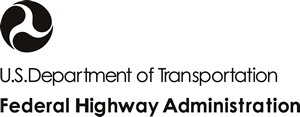The Active Transportation and Demand Management Program (ATDM): Lessons Learned
Download the Printable Version [PDF, 1.2 MB]
You may need the Adobe® Reader® to view the PDF(s) on this page.
Contact Information: OperationsFeedback@dot.gov
March 2013
FHWA-HOP-13-018
U.S Department of Transportation
Federal Highway Administration
Office of Operations
1200 New Jersey Avenue, SE
Washington, DC 20590
Office of Operations Web Site
https://ops.fhwa.dot.gov

Disclaimer
This document is disseminated under the sponsorship of the Department of Transportation in the interest of information exchange. The United States Government assumes no liability for its contents or use thereof. This report does not constitute a standard, specification, or regulation.
The United States Government does not endorse products or manufacturers. Trade and manufacturers' names appear in this report only because they are considered essential to the object of the document.
Quality Assurance Statement
The Federal Highway Administration (FHWA) provides high-quality information to serve Government, industry, and the public in a manner that promotes public understanding. Standards and policies are used to ensure and maximize the quality, objectivity, utility, and integrity of its information. FHWA periodically reviews quality issues and adjusts its programs and processes to ensure continuous quality improvement.
Technical Report Documentation Page
| 1. Report No.
FHWA-HOP-13-018 |
2. Government Accession No. | 3. Recipient's Catalog No. | |
| 4. Title and Subtitle
THE ACTIVE TRANSPORTATION AND DEMAND MANAGEMENT PROGRAM (ATDM): LESSONS LEARNED |
5. Report Date
March 2013 |
||
| 6. Performing Organization Code
HOP |
|||
| 7. Author(s)
Beverly Kuhn (TTI), Deepak Gopalakrishna (Battelle), and Eric Schreffler (ESTC) |
8. Performing Organization Report No. | ||
| 9. Performing Organization Name and Address Texas A&M Transportation Institute, The Texas A&M University System, College Station, Texas 77843-3135 |
10. Work Unit No. | ||
| 11. Contract or Grant No.
Project No. DTFH61-06-D-0007 |
|||
| 12. Sponsoring Agency Name and Address
U.S. Department of Transportation |
13. Type of Report and Period Covered
Technical |
||
| 14. Sponsoring Agency Code
FHWA |
|||
| 15. Supplementary Notes
Project performed in cooperation with the U.S. Department of Transportation, Federal Highway Administration. |
|||
| 16. Abstract
Active transportation and demand management (ATDM) is the proactive and dynamic management, control, and influence of travel demand, traffic demand, and traffic flow of transportation facilities. Using available tools and assets, traffic flow is managed and traveler behavior is influenced in real time to achieve operational objectives, such as preventing or delaying breakdown conditions, improving safety, promoting sustainable travel modes, reducing emissions, or maximizing system efficiency. Under an ATDM approach, the transportation system is continuously monitored. This report documents the lessons learned and critical issues related to the deployment of ATDM across the United States to date. Common themes that resonate with transportation professionals regarding ATDM include agency approaches to incorporating ATDM in the planning process, regulatory and institutional obstacles that may need to be overcome prior to implementation, the importance of developing strong partnerships with stakeholders, the importance of outreach, addressing design exceptions created by ATDM applications, appropriate signage to adequately convey operational strategies to travelers, and operations and maintenance approaches and responsibilities. |
|||
| 17. Key Words
Active transportation and demand management, Active traffic management, Active demand management, Highway capacity, Operations, Deployment |
18. Distribution Statement
No restrictions. |
||
| 19. Security Classif. (of this report) Unclassified |
20. Security Classif. (of this page) Unclassified |
21. No. of Pages
54 |
22. Price |
Form DOT F 1700.7 (8-72) Reproduction of completed page authorized
Acknowledgments
This study was conducted in cooperation with the staff from FHWA, Battelle, and other agencies across the United States. Jim Hunt—Congestion Management and Pricing Team—served as the project director and provided guidance throughout the study. Special thanks are also extended to the following organizations for their participation in the peer exchange workshop and various case study interviews: Booz Allen Hamilton, California Department of Transportation, Center for Urban Transportation Research, Dallas Area Rapid Transit, Delaware Department of Transportation, Dowling Associates, Federal Transit Administration, Institute of Transportation Engineers, Iteris Inc., Kimley-Horn and Associates Inc., King County Metro Transit, Massachusetts Department of Transportation, Microsoft Real Estate and Facilities, Minnesota Department of Transportation, Mouchel Limited, New York City Department of Transportation, New York State Department of Transportation, Oregon Metro, Parsons Brinckerhoff, Puget Sound Regional Council, Rijkswaterstaat, Transportation Research Board, Virginia Department of Transportation, and Washington State Department of Transportation.
Table of Contents
- DISCLAIMER
- QUALITY ASSURANCE STATEMENT
- LIST OF FIGURES
- LIST OF TABLES
- ACKNOWLEDGMENTS
- EXECUTIVE SUMMARY
- 1.0 INTRODUCTION
- 2.0 ATDM KNOWLEDGE AND TECH TRANSFER WORKSHOP HIGHLIGHTS
- 3.0 MOVING FROM IDEA TO IMPLEMENTATION
- 4.0 DISCUSSION
- REFERENCES
List of Figures
- Figure ES-1. The Active Management Cycle.
- Figure ES-2. Moving towards active management in the area of speed control.
- Figure 1. The ATDM approach.
- Figure 2. Moving towards active management in the area of speed control.
- Figure 3. Modified Dutch model of travel demand and traffic management.
- Figure 4. ATDM impact on the trip chain.
- Figure 5. Minnesota: priced dynamic shoulder lane on I-35.
- Figure 6. Washington: ATM on I-5.
- Figure 7. California: junction control on northbound SR-110.
List of Tables
- Table 1. International Influence on the ATDM program.
- Table 2. Key peer questions regarding ATDM.
- Table 3. Key ATDM planning lessons learned.
- Table 4. Key design lessons learned for ATM Systems.
- Table 5. Key operations lessons learned for ATM Systems.